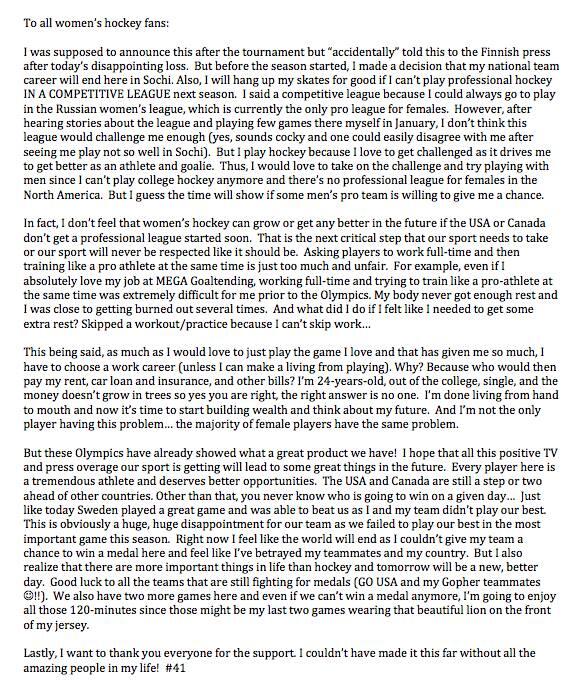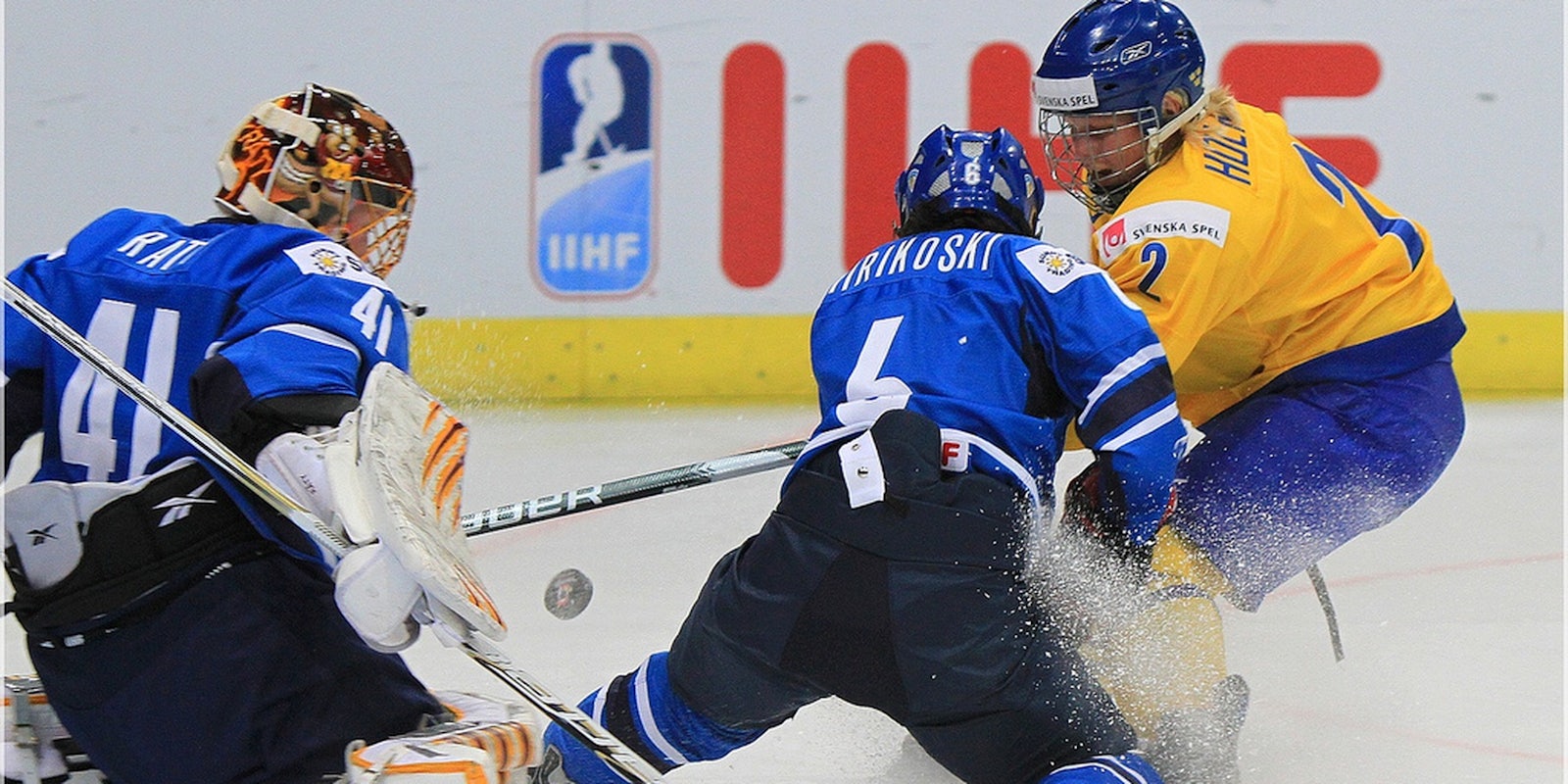Aside from the obvious, there’s one major difference between men’s and women’s hockey at the Winter Olympics. That difference is money.
While the men’s national teams are full of highly paid household names like Sidney Crosby and Patrick Kane, many of their female counterparts tell stories of working full time to support their sporting career or having to live out of their car because they couldn’t afford college and training costs at the same time.
The fact that there’s a gender divide in professional sports is not exactly news, but on Saturday, Finnish hockey goaltender Noora Räty made the unusual decision to go public about the difficulties of supporting herself as a female hockey player.
Following Finland’s defeat in the Olympic quarterfinals, Räty made the surprise announcement that she would be retiring—unless a professional (i.e., all-male) team would hire her instead. In a lengthy post on Twitter, she described how exhausting it was to try and hold down a day job while training like a professional athlete, due to the lack of a women’s hockey league that actually pays its players.
“[B]efore the season started, I made a decision that my national team career will end here in Sochi. Also, I will hang up my skates for good if I can’t play professional hockey IN A COMPETITIVE LEAGUE next season. I said a competitive league because I could always go to play in the Russian women’s league, which is currently the only pro league for females. However, after hearing stories about the league and playing a few games there myself in January, I don’t think this league would challenge me enough (yes, sounds cocky and one could easily disagree with me after seeing me play not so well in Sochi). But I play hockey because I love to get challenged as it drives me to get better as an athlete and goalie. Thus, I would love to take on the challenge and try playing with men since I can’t play college hockey anymore and there’s no professional league for females in the North America. But I guess the time will show if some men’s pro team is willing to give me a chance.”
Retirement slipped out of my mouth today so here’s more clarification from me so people can stop asking #thankyou pic.twitter.com/8ukoRVKBJc
— Noora Räty (@Nooraty41) February 15, 2014

“I’m 24-years-old, out of the college, single, and the money doesn’t grow in trees,” she explained. “I’m done living from hand to mouth and now it’s time to start building wealth and think about my future. And I’m not the only player having this problem… the majority of female players have the same problem.”
“In fact, I don’t feel that women’s hockey can grow or get any better in the future if the USA or Canada don’t get a professional league started soon. That is the next critical step that our sport needs to take or our sport will never be respected like it should be. Asking players to work full-time and then training like a pro athlete at the same time is just too much and unfair.”
She went on to tweet that she has never made money playing hockey, despite her status as a three-time Olympian and successful college hockey player in the U.S. The good news is that in the absence of a professional women’s league, her desire to play for a men’s team may not be completely unrealistic. Hockey is one of the few major sports where women have been allowed to play in what are traditionally known as men’s teams. Most notably, Canadian goalie Manon Rhéaume played for several professional minor-league teams in the ’90s, and Angela Ruggiero briefly played for the Tulsa Oilers.
Basically, if a world-class female hockey player wants to get paid to do her job, then she has a better chance of doing so in a men’s team than of waiting for a professional women’s league to show up before she retires.
Räty’s Twitter post sounds similar to the story of many Olympic athletes: years of personal sacrifices, training and hard work, all leading up to this point. The difference is, her story doesn’t really have a happy ending. Yes, she has reached the top of her game. But like so many female athletes before her, she may have no choice but to quit the sport she loves to make a living.
Photo via _becaro_/Flickr


